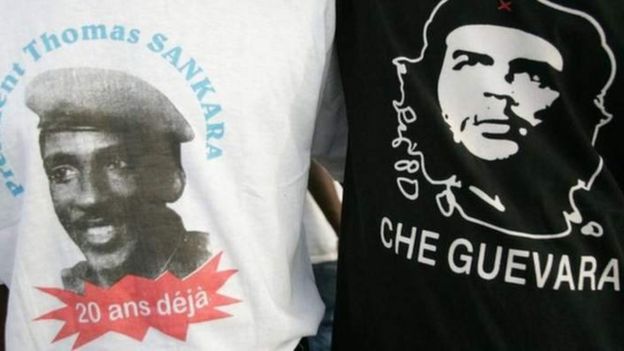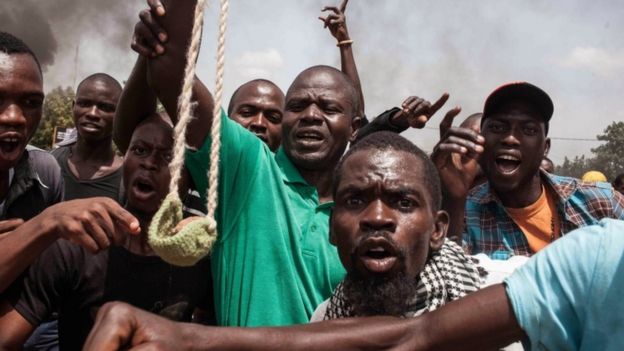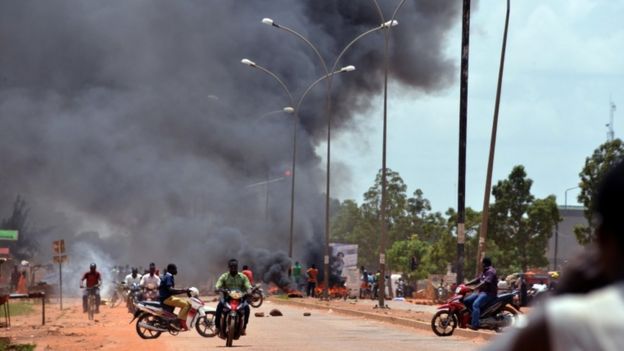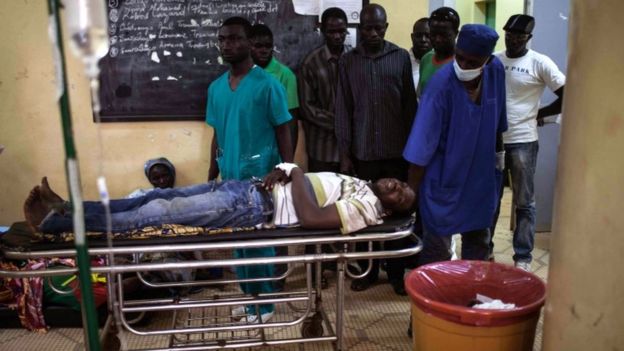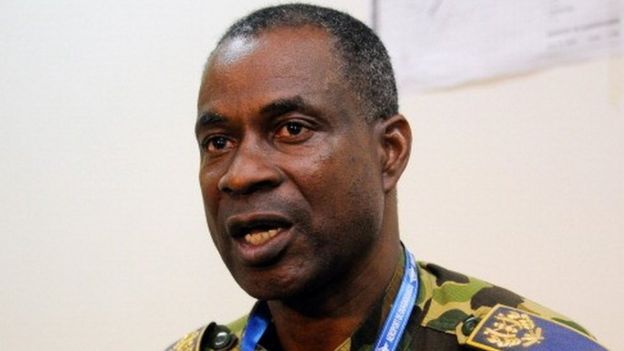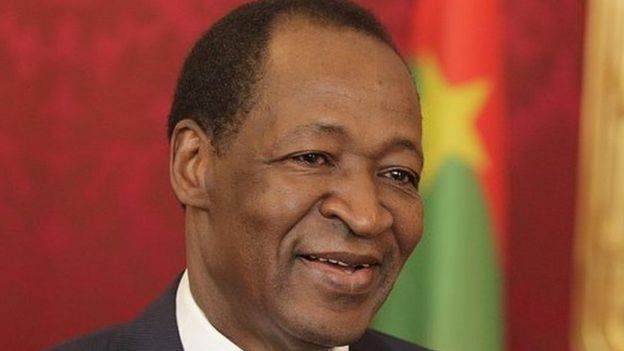In May 2015, I wrote a commentary entitled, “Why Is the T-TPLF Afraid of Its Own Shadow?”
![Prof. Alemayehu G. Mariam]()
Prof.Alemayehu G. Mariam
In that commentary, I expressed puzzlement over the fact that supporters of the Thugtatorship of the Tigrean People’s Liberation Front (T-TPLF) were telling me that T-TPLF leaders were scared _ _ _ _less in the run up to the “2015 Elektion”. I openly wondered:
Why they would tell me intimate details about fear and loathing in the T-TPLF camp is a mystery to me. Perhaps disinformation, I remind myself. But “they” know I am too damn jaded to be a sucker for disinformation. Why then would they “confide” in me? Frankly, I don’t know and don’t care to know.
It seems there is now a glint of the real sturm und drang (turmoil and anxiety) in the T-TPLF camp.
Addis Fortune, touted to be the “largest English-language weekly” in Ethiopia, posted a curious piece in its September 7 “Column”.
I have followed Addis Fortune (AF) on line from time to time. I have found its analysis and op ed pieces uncannily well-informed despite attributions to enigmatic sources deep in the belly of the T-TPLF. AF analyses are often cogently presented and their tone ranges from the from the openly censorious to the caviling. When it comes to the intrigues and monkey business of the T-TPLF, AF seems to be on the money most of the time.
I was prompted (more accurately impelled) to write this commentary by the last sentence in AF’s September 7 “Column”:
There is nothing less than action from the EPRDFites under the chairmanship of Hailemariam Desalegn which can redeem the party’s old glory in the eyes of its core supporters – who appear to be drifting away from the Revolutionary Democrats but who have lost their way for sheer lack of better alternatives – and restore their faith, claims gossip. (Emphasis added.)
The essence of the AF “column”, based on an anonymous informant called “Gossip” (not clear if it is Mr. or Ms. Gossip), is that the EPRDF is in deep doodoo (poopoo).
(The EPDRF is the stage name/ nom de politique of the Tigrean People’s Liberation Front (TPLF), a brand the TPLF uses to project a bogus image of a political coalition. Imagine a coalition of hyenas with lambs.)
According to Mr./Ms. Gossip:
There is much that needed to be fixed in the world of Revolutionary Democrats, judging from what has transpired in their recent convention held in Meqelle. EPRDFites, from a farmer cadre up to the most senior veteran leader, and from those in the youngest to the most senior party in the coalition have spoken their minds in unison; the ruling EPRDF is deep in the woods and the menace to its very survival is more unnerving than it has ever been in the two decades of its existence, according to gossip.
Many were outspoken about the dangers to which the party has succumbed, while some bluntly said the leadership is shaped to preserve power at any the cost. Others spoke about the path they believe the party is taking into degeneration. Even the report endorsed by the leadership and presented to the convention was unusually candid about the fears and threats of such imminent degeneration.
[I]ts veterans and long serving leaders from Abay Tsehaye to Addisu Legesse, seemed to be sidelined…
But none has looked as discontented and outspoken on the menace of the party as Bereket Simon, the founding and veteran leader of ANDM-EPRDF… He has left his role as a leader of both platforms after 30 years, putting his concerns off his chest in Bahir Dar, where the ANDM had its recent meeting. He was critical of the path the party is taking… [He did not] travel to Meqelle to attend the EPRDF convention, for the first time since its creation in the late 1980s… It was a scene which broke the hearts of many of the rank and file of the ANDM…
At the heart of the political debate is the party’s failure to deliver on its promises of good governance, rule of law and shared prosperity… If there is any source of legitimacy the Revolutionary Democrats are left with to rule, it is in the growth in the economic front and their ability to maintain the nation stable and secure…
It is ironic for those in the gossip corridors to see a leadership whose obsession with seeing its political adversaries down on their knees seeking forgiveness and showing repentance, now agreeing to do the same to members of the public. Very soon, the executive committee of the EPRDF will meet in Addis Abeba to digest and eternalise the public’s outrage and frustration channelled through its rank and file at the convention, gossip disclosed.
Oddly enough, even their strongest supporters appear to have given up on ending acknowledgement of wrongs to the public and promises for the better, gossip observed. There is nothing less than action from the EPRDFites under the chairmanship of Hailemariam Desalegn which can redeem the party’s old glory in the eyes of its core supporters – who appear to be drifting away from the Revolutionary Democrats but who have lost their way for sheer lack of better alternatives – and restore their faith, claims gossip. (Emphasis added.)
I congratulate AF for its “gossip”.
Jonathan Swift (of “Gulliver’s Travels”) used to say, “I heard the little bird say so.” But Mr./Ms. Gossip will do just as well.
But AF knows how to use little birds and “expert gossipers who know how much to leave out of a conversation.”
The point is there is much to have a conversation about with the AF gossip “column”.
Truth be told, the question of a “better alternative” to the T-TPLF has been gnawing away at mind since the day I decided to join the Ethiopian human rights struggle following the Meles Massacres in 2005.
My readers will recall that I was resolutely propelled to oppose the T-TPLF and its late leader Meles Zenawi after I secured evidence beyond a shadow of doubt that Meles Zenawi had personally directed and authorized the murder of some 200 unarmed demonstrators and shooting with-intent-to-murder of another 800 plus demonstrators.
A certified list of the 237 killers who participated in the Meles Massacres are readily available.
We also know of the identities of all of the individual officials, including security and police, in the chain of command during the Meles Massacres.
The question of “sheer lack of better alternatives”
What does it mean to have “better alternatives”?
The AF little bird says “EPRDF’s core supporters appear to be drifting away” and “lost their way”.
Are EPRDF’s “core supporters” looking for “better alternatives”, but not finding one?
What an extraordinary observation!!
Does “the lack of better alternatives” mean the EPRDF emperor has no clothes?
With no clothes, is the EPRDF emperor actually King TPLF? (I did not say King Kong.)
I am not sure exactly what AF’s little bird has in mind talking about “better alternatives”.
But a lot of questions pop in my mind thinking about “better alternatives” to the T-TPLF:
Are we talking about a better alternative to a gang of bush thugs who have maintained themselves in power by massacring not only unarmed demonstrators in the streets but also systematically killing their opponents?
Are we talking about a better alternative to a gang of bush thugs who have robbed Ethiopia blind? In 2011, Global Financial Integrity reported, “Ethiopia lost $11.7 billion to outflows of ill-gotten gains between 2000 and 2009.”
Are we talking about a better alternative to a gang of bush thugs who have transformed Ethiopia into a vast kleptocracy. The World Bank issued a 417-page on Ethiopia entitled, “Diagnosing Corruption in Ethiopia”. The World Bank has not done such a comprehensive evaluation of corruption for any other country!!!
Are we talking about a better alternative to a gang of bush thugs who claimed to have “won” 99.6 percent of the parliamentary seats in 2010 and in May 2015claimed “winning” 100 percent of the same seats?
Of course, there are much better alternatives to a gang of bush thugs raping a country.
It’s pretty simple.
I would, for instance, nominate the following distinguished luminaries from the motion picture industry as “better alternatives” to the collective leadership of the T-TPLF:
Wile E. Coyote (to replace the late Meles Zenawi in memoriam); Mickey Mouse (to replace Hailemariam Desalegn); Oil Can Harry (Debrertsion Gebre-Michael); Pinochio (Bereket Simon (a/k/a Lying “Chemical (Comical) Ali [Iraq]”); King Louie (Sebhat Nega); Tewodros Adhanom (Patrick Star from Spongebob Squarepants); Abay Woldu (Yosemite Sam); Doofus Drake (Demeke Mekonnen), Cruella de Vil (Azeb Mesfin), Baloo (Mulatu Teshome), Arkebe Oqubay (Don Karnage); Abay Tsehaye (Sylvester the Cat); Foghorn Leghorn (Samora Yunis ); Goofy (Abadula Gemeda); Porky Pig (Girma Wold Giorgis); Addisu Legese (Elmer T. Fudd); Seyoum Mesfin (Bugs Bunny); Redwan Hussien (Speedy Gonzalez); Droppy (Abadi Zemo); Tsegay Berhe (Pepe Le Pew) and so on.
But if the AF little bird is talking about better are more practical political alternatives, that would require deeper analysis.
Do we mean a practical political alternative to the “developmental state”?
Do we mean better political alternatives as in a political party with a program for democratic governance in Ethiopia?
Do we mean better political alternatives as in a coalition of opposition elements forming a united front for the “salvation” of Ethiopia?
Do we mean better political alternatives as in a government with non-ethnic-based parties?
Do we mean better political alternatives to a “Baksheesh (beggar) State” in Ethiopia?
Do we mean better political alternatives as in a government based on the rule of law, accountability and transparency?
Do we mean better political alternatives as in a government-in-exile?
Developmental state: What is that? Is it a state run by the developmentally disabled for the developmentally disabled?
It is manifest that T-TPLF leaders suffer from certain mental impairments such as hate, distorted perception of reality, hallucinations (they call it “vision”), delusions, anger management issues, bipolar disorder, etc.
Meles Zenawi, the architect of the “developmental state” in Ethiopia in his intellectually pretentious, rambling, doctrinaire and pompously pedantic 51-page monograph (with a warning not to quote from it) argued, “Development is a political process first and economic and social process later. It is the creation of a political set-up that is conducive to accelerated development that sets the ball of development rolling. Only when there is a state that has the characteristics of a developmental state can one meaningfully discuss the elimination of rentseeking.”
Whatever that mumbo jumbo means, the “developmental state” argument is an elaborate subterfuge to justify following the “China Model”, which has become the ultimate smokescreen for African Dictators, Inc.
The T-TPLF “developmental state” is a justification for circumventing transparent and accountable governance, competitive, free and fair elections and suppression of free speech and the press. It is a huge hoax perpetrated on the people with the aim of imposing absolute control and exacting total political obedience while justifying brutal suppression of all dissent and maximizing T-TPLF’s kleptocratic monopoly over the economy.
A multiparty state is an excellent alternative to a state run by the developmentally disabled.
Political parties based on a well-defined political ideology and program:There are a number of party programs available. I have read the Kinijt Manifesto. I have read the Blue Party Program. I have read the Andinet Party Programme. I have also read the EPDRF Program, as well as others.
Broad declarations of intent, promises of good governance and pledges to respect human rights are great but do they address the real questions.
For instance, how would the parties tackle the “ethnic federalism devil”?
I say, do a collective exorcism and banish the demon of ethnic federalism from the blessed land of Ethiopia forever!
The T-TPLF (excuse me, EPRDF) has come to the realization that its creation, Ethnic Federalism Frankenstein, is about to swallow it.
A few days ago, Hailemariam Desalegn, the marionette (puppet) prime minister of the T-TPLF, was bleating for help.
He was sending out an S.O.S. I asked with astonishment, “Is the T-TPLF Ship of Hate Sinking… S.O.S.?”
Coalition of opposition parties: Now that is an idea whose time had come and gone, it needs to come back again.
Party coalition-building has proven to be a success. In May 2005, Kinijit (a coalition of four political parties) thumped the T-TPLF into the ground. Kinijit won 137 of the 138 seats in the capital Addis Ababa.
The late Meles Zenawi wanted to teach the Kinijit leaders a lesson. He jailed them all. That ended that coalition.
Why can’t opposition parties form coalitions today?
The T-TPLF wised up after it got its rear end kicked in 2005.
The T-TPLF has been toiling day and night to prevent another party coalition from forming. They will try to co-opt potential coalition makers. If that does not work, they will harass them, intimidate them, prosecute and jail them. The T-TPLF will never allow a coalition to form under its watch.
There is no question a coalition of opposition parties is an excellent alternative.
Despite T-TPLF shenanigans, is it still possible to form coalitions among opposition parties?
United front opposition pro-democracy elements: In a number of countries, diverse pro-democracy elements have formed a united front against a tyrannical state.
It should be possible to develop a common purpose among all opposition elements, not only political ones, and reach a general agreement to merge their forces to oppose the T-TPLF.
A united front opposition forum could discuss in earnest the possibility of a transitional government.
As a historical reminder, the T-TPLF set up its bogus shell organization, the EPRDF, as a “united front” under the leadership of the TPLF to replace the military junta in power in 1991. They proposed a cease fire and formation of a transitional government representing all political forces in Ethiopia.
Of course, the TPLF scammed, duped and flimflammed everybody and consolidated power. They have been in power since 1991.
A united front opposition forum is an excellent alternative to the thug state.
“Baksheesh (beggar) State” in Ethiopia: A year ago, I coined the concept of the “baksheesh state” to analyze regimes and states that sustain themselves primarily through international alms (aid + loans) and engage in aid/loan racketeering (use of legitimate organizations for illegal purposes) through a variety of corrupt practices.
Just as I have previously argued that the highest stage of African dictatorship is “thugtatorship”, I argued that the “baksheesh state” (beggar state) is a predictable mutation of the garden variety African “kleptocracy” where political power is a means for public officials and elite members of the ruling class to accumulate personal wealth by effectively privatizing and siphoning the public treasury and resources at the expense of the broader population.
There are myriad alternatives to the Baksheesh State.
A couple of weeks ago, the U.N. reported:
The number of Ethiopians who will need food aid by the end of this year has surged by more than 1.5 million from earlier estimates due to failed rains, United Nations agencies said on Monday.
Ethiopia needs an extra $230 million from donors to secure aid for a total of 4.5 million people now projected to require assistance this year.
The T-TPLF will be making a beeline to the donors’ doors with a brand new panhandle in hand. “Baksheesh, please!”
Government-in-exile: There are those trying to organize for the eventual establishment of a government-in-exile as a better alternative to the T-TPLF “government”. There are myriad examples of governments-in-exile and they are recognized under interntional law. The question is how such efforts could be organized to meet the legal stnadads inder international law. A government-in-exile is certainly a path to a better alternative.
Rule of law or rule of ignoramuses: Talking about the rule of law to T-TPLF leaders is like preaching Scripture to Heathen, or pouring water on a slab of granite. It is an exercise in total futility.
The T-TPLF has a constitution but they ignore it; they talk about it only when they want to charge someone with their laughable anti-terrorism law.
In terms of the flagrant disregard for the constitutional and human rights of the suspects, one cannot be unimpressed by the abysmal depth of ignorance and depraved indifference of the T-TPLF leaders to their own constitution.
Art. 20 (3) of the T-TPLF constitution provides: “During proceedings accused persons have the right to be presumed innocent.” The Zone 9 bloggers, young men and women using Facebook, have been dragged to the T-TPLF kangaroo/monkey court since April 2014. Recently, I wrote a commentary entitled, “Ethiopian Bloggers in Kangaroo (Monkey) Kourt” documenting their plight.
Article 19 (5) of the T-TPLF constitution provides that the accused “shall not be compelled to make confessions or admissions which could be used in evidence or against them. Any evidence obtained under coercion shall not be admissible.” Suspects hailed in T-TPLF monkey court on trumped up charges are tortured into making a confessions, according to Human Rights Watch.
Article 21(2) of the T-TPLF constitution provides “Accused persons have the right to be represented by legal counsel… and communicate with their legal counsel.” Yeah, right!
In October 2013, I wote a commentary entitled “Confessions of a Police State” documenting the flagrant violations of of procedural rights suffered by Ethiopians.
There are much better alternatives to the rule of ignoramuses.
Doomsday scenarios: The T-TPLF says without the T-TPLF Ethiopia will be no more. They say Ethiopia will disintegrate into pieces like shards of glass. (Of course, the T-TPLF historians are unaware that Ethiopia has survived for thousands of year. They believe Ethiopia was created one hundred years ago.) In November 2014, I wrote a commentary entitled, “The de-Ethiopianization of Ethiopia” expounding on the delusions of the T-TPLF.
The T-TPLF says without the T-TPLF Ethiopia’s development will collapse and Ethiopia return to poverty.
(For the record, the T-TPLF never, ever mention the fact that Ethiopia has beenranked as the “second poorest nation in the world” as late as 2014!)
The T-TPLF says without T-TPLF holding the sky over the Horn of Africa, the sky will come tumbling down and sweep all of East Africa right into the Indian Ocean.
Simply put, entrusting the future of Ethiopia to the T-TPLF thugs is like entrusting a hand (bunch) of bananas to a congress (bunch) of monkeys (not the ones in monkey court).
To be continued…
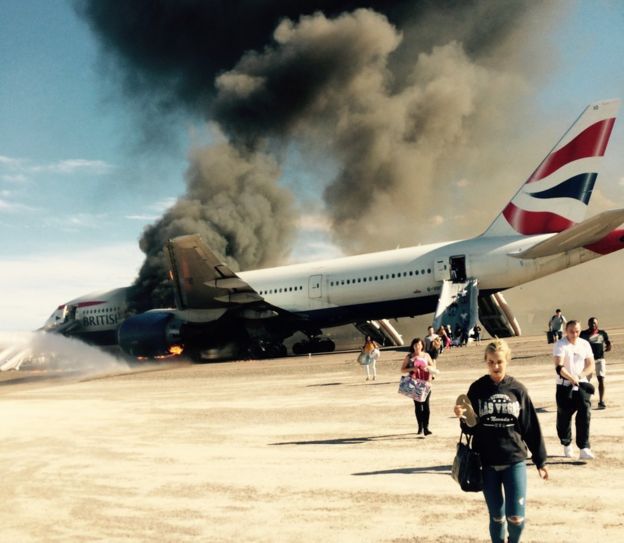 Image copyrightJordan Masters
Image copyrightJordan Masters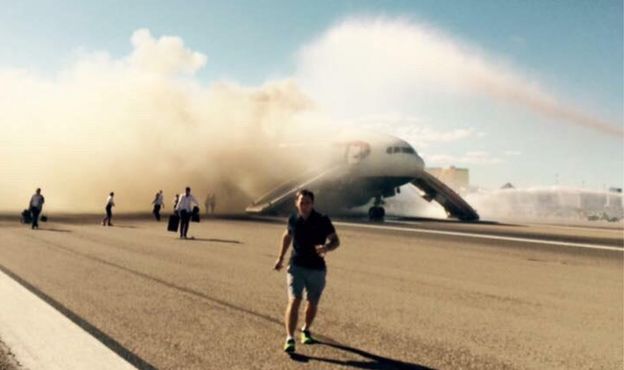 Image copyrightJacob Steinberg/The Guardian
Image copyrightJacob Steinberg/The Guardian
 Image copyrightLynn Alexander
Image copyrightLynn Alexander Image copyrightAP
Image copyrightAP Image copyrightAP
Image copyrightAP Image copyrightDavid Somers via AP
Image copyrightDavid Somers via AP Image copyrightAFP
Image copyrightAFP































